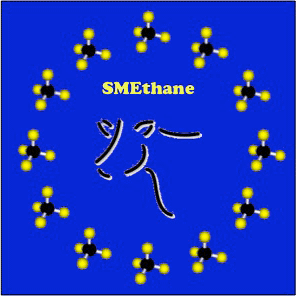Institut National de la Recherche Agronomique, (INRA)
INRA is the largest agricultural research organisation in Europe, with 8350 staff and a budget of 770 millions euros. INRA is attached to the Ministry of research and Technology and to the Ministry of Agriculture and Fisheries. INRA is taking up the scientific challenges of the life sciences, helping to accomplish profound changes in farming, responding to new demands from society (food safety and quality, ethics, science-society debate, etc.) by strengthening its resources in three major fields: the development of sustainable agriculture; nutrition and its effects on human health and the environment and regional development. The research is organised into 14 research divisions specialising in agriculture, food and nutrition, and the environment and 21 regional research centres for a total of 208 research units and 51 experimental units with a total surface area of 10,000 ha and 94,000 animals.
The team Microbial Digestion and Absorption (DIMA; 26 permanent staff) of the UR Herbivores, in charge of the current project, has a large experience on several aspects of herbivores nutrition and digestion. An increasing part of DIMA's research is focused on the quantitative determination of methane production by ruminants under different productive situations as well as the testing of various mitigation options both in vitro and in vivo. The team has a large experience in the use of feed additives and supplements and the modification of the rumen microbial community in relation to methanogenesis. A global approach to place methane emission by ruminants in a more general context and in relation to other GHG at the farm or national scale, and the use of the life cycle assessment technique is also being developed.
The Unit has state of the art animal facilities to perform in vivo trials following regulations and animal welfare standards. Sheep, dairy and beef cattle are available on site. DIMA utilises various in vitro systems and has access to equipments to measure rumen fermentation metabolites and other molecules of interest and the microbial ecosystem. If necessary, expertise that can give an added value to the project in animal welfare, evaluation of milk and meat quality, and farm economics is available within the Unit.
Staff involved:
- Dr. Diego Morgavi. – is a senior researcher and leader of the microbial digestion and absorption research group. His research interests are the rumen microbial ecosystem in relation to nutrition and the environmental footprint of ruminant production. He coordinates a French National Research Agency (ANR) funded project to reduce methane emissions by ruminants through innovative technologies. In addition, the research team is involved in several EU and ANR projects. He has published more than 60 refereed papers and book chapters and presented his work more than 90 communications at scientific meetings.
Other staff involved:
- H. Boudra. M. Doreau, M. Eugène and C. Martin.
Web site: www.inra.fr
